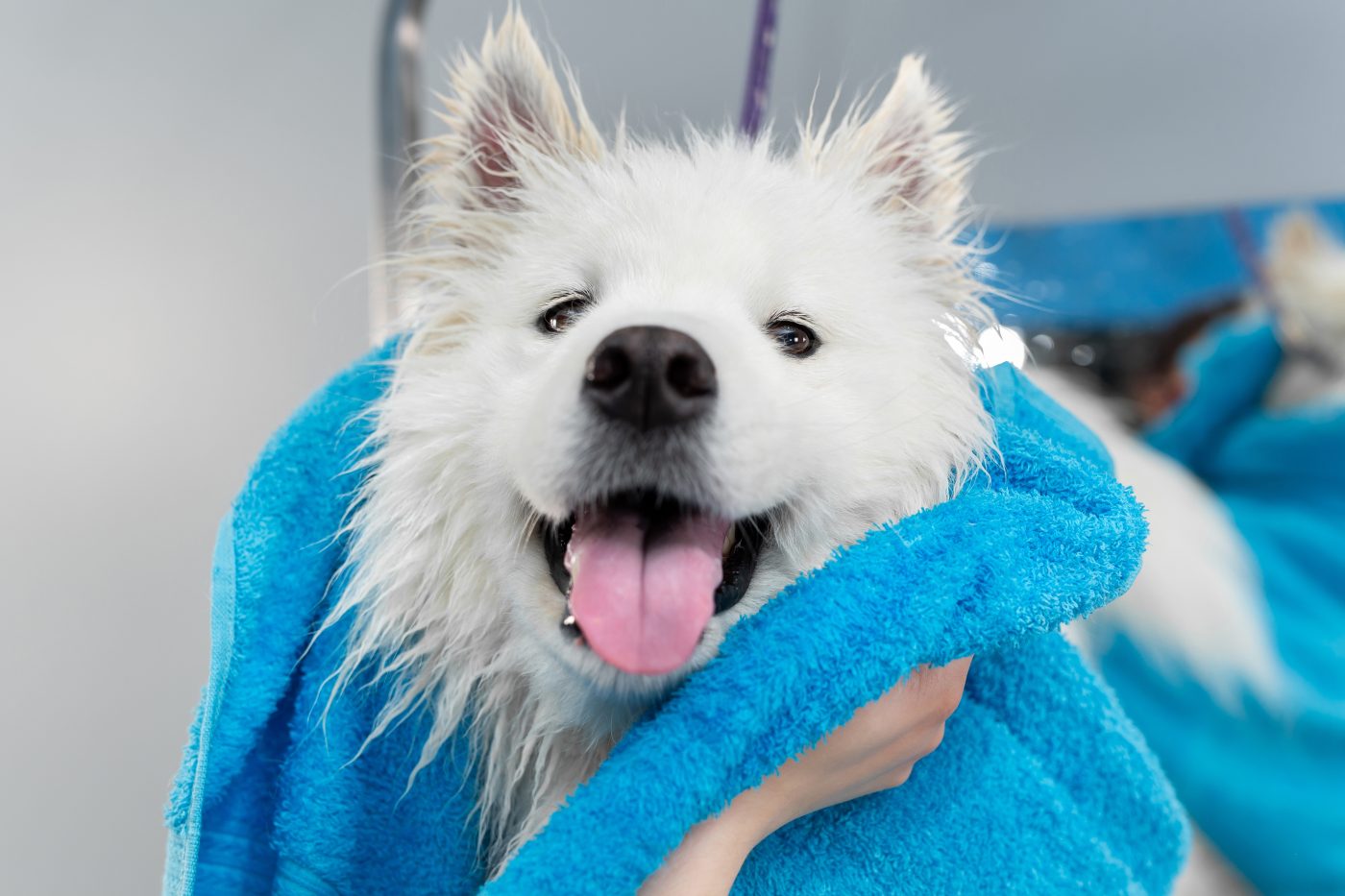 Shutterstock
Shutterstock
Pampering your dog at home can be a fun, relaxing way to bond while keeping them healthy. Regular grooming benefits your dog’s well-being, reduces stress, and shows them extra love. From brushing their coat to trimming nails, bathing, and even giving a massage, a home spa day covers it all. The best part? You don’t need fancy tools—just time, patience, and the right techniques. Here are some easy tips to give your dog a spa-like experience in the comfort of your home.
Create a Calming Environment
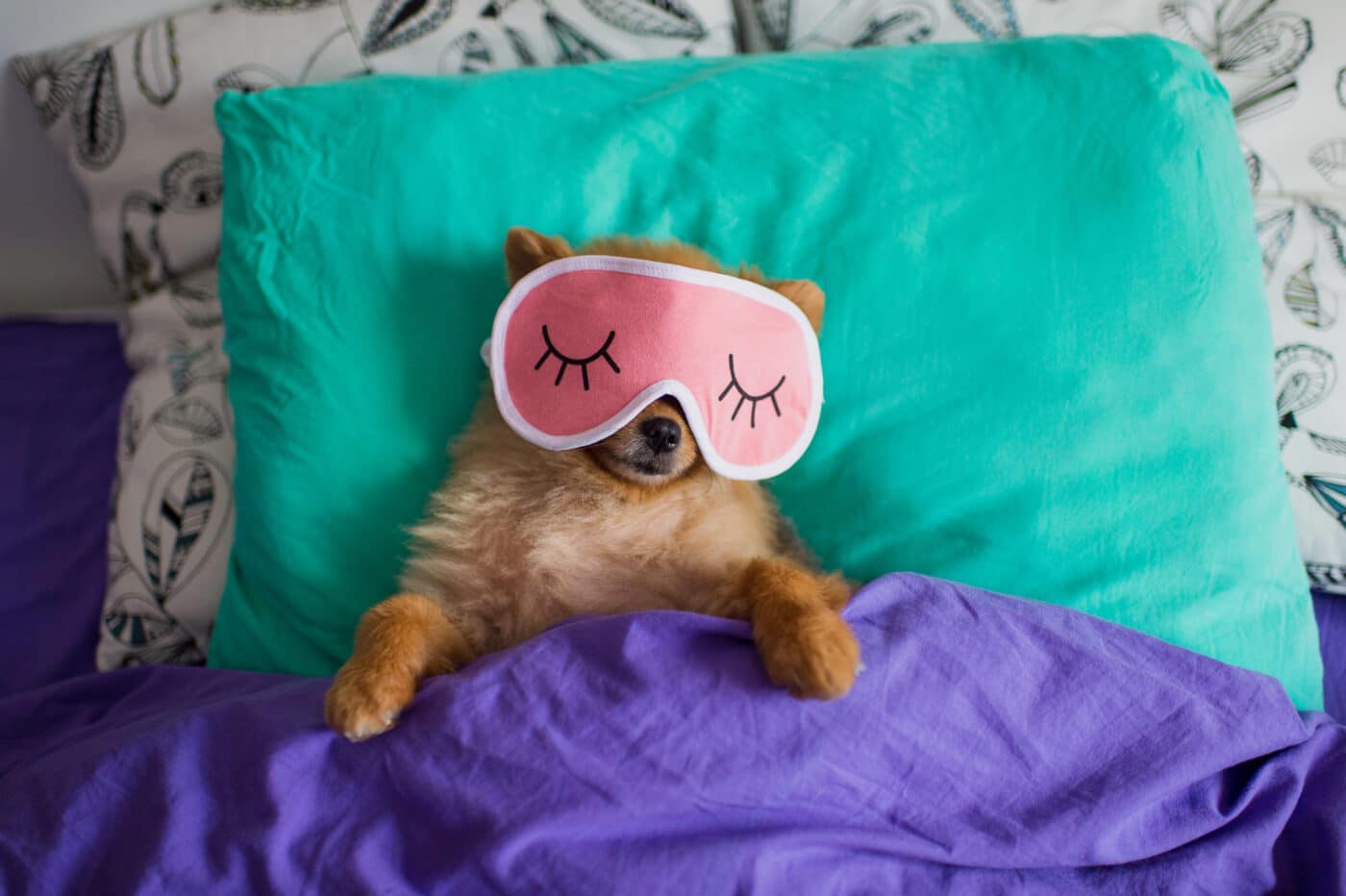 Shutterstock
Shutterstock
To start your dog’s spa day off right, you need to create a relaxing environment. Choose a quiet room where your dog feels safe and comfortable. Playing soft music or dimming the lights can help your dog feel at ease. If your dog is nervous or anxious, start the session slowly and reward them with treats to reinforce positive feelings.
Begin with a Thorough Brushing
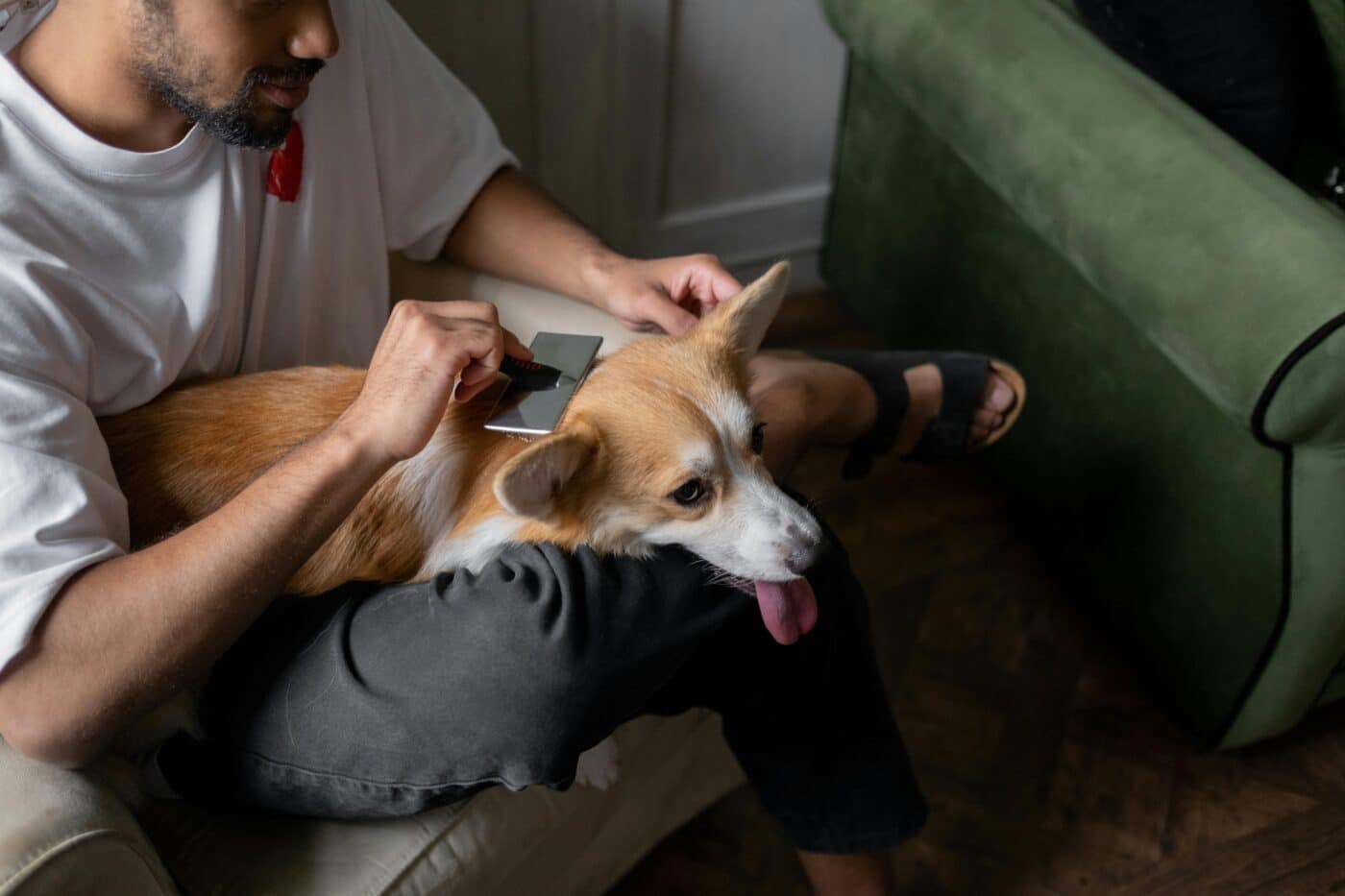 Shutterstock
Shutterstock
Brushing your dog’s coat before bathing removes loose fur, dirt, and tangles. Regular brushing also helps distribute natural oils throughout their coat, keeping it shiny and healthy. Use a brush suitable for your dog’s coat type, and gently work through any knots or mats. Not only will this make bath time easier, but it also helps reduce shedding.
Use a Dog-Specific Shampoo
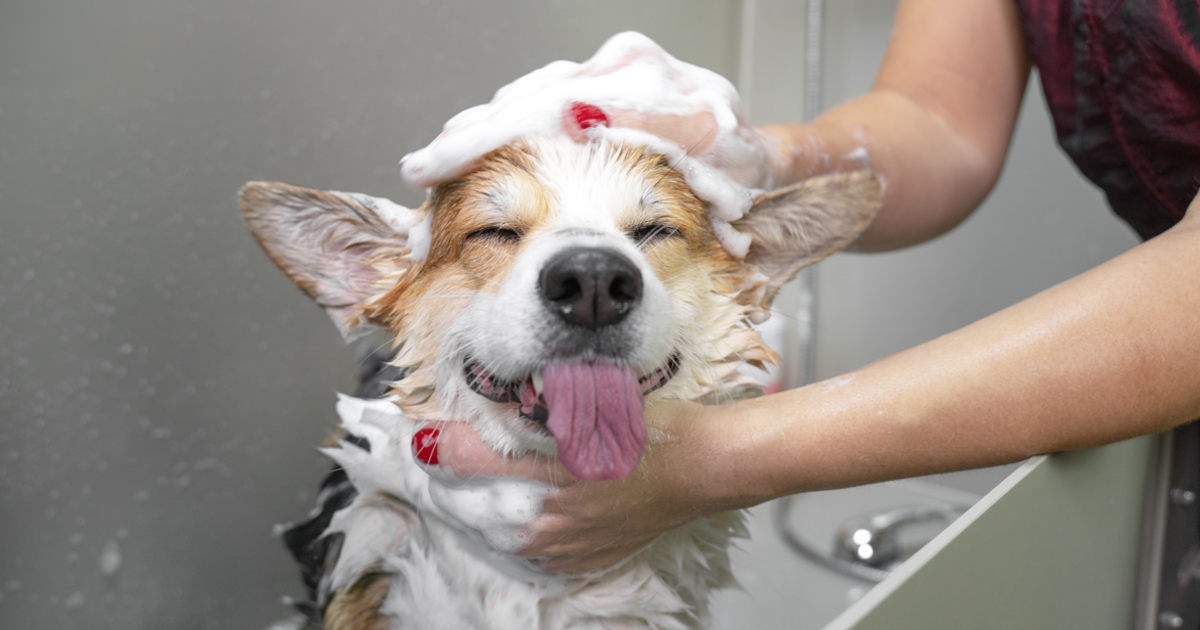 Shutterstock
Shutterstock
When bathing your dog, always choose a shampoo made specifically for dogs. Human shampoos can be too harsh and disrupt the pH balance of your dog’s skin, leading to irritation. For dogs with sensitive skin, opt for a hypoallergenic shampoo, and if your dog has any skin conditions, consider using a medicated shampoo as your vet recommends.
Warm Water for Comfort
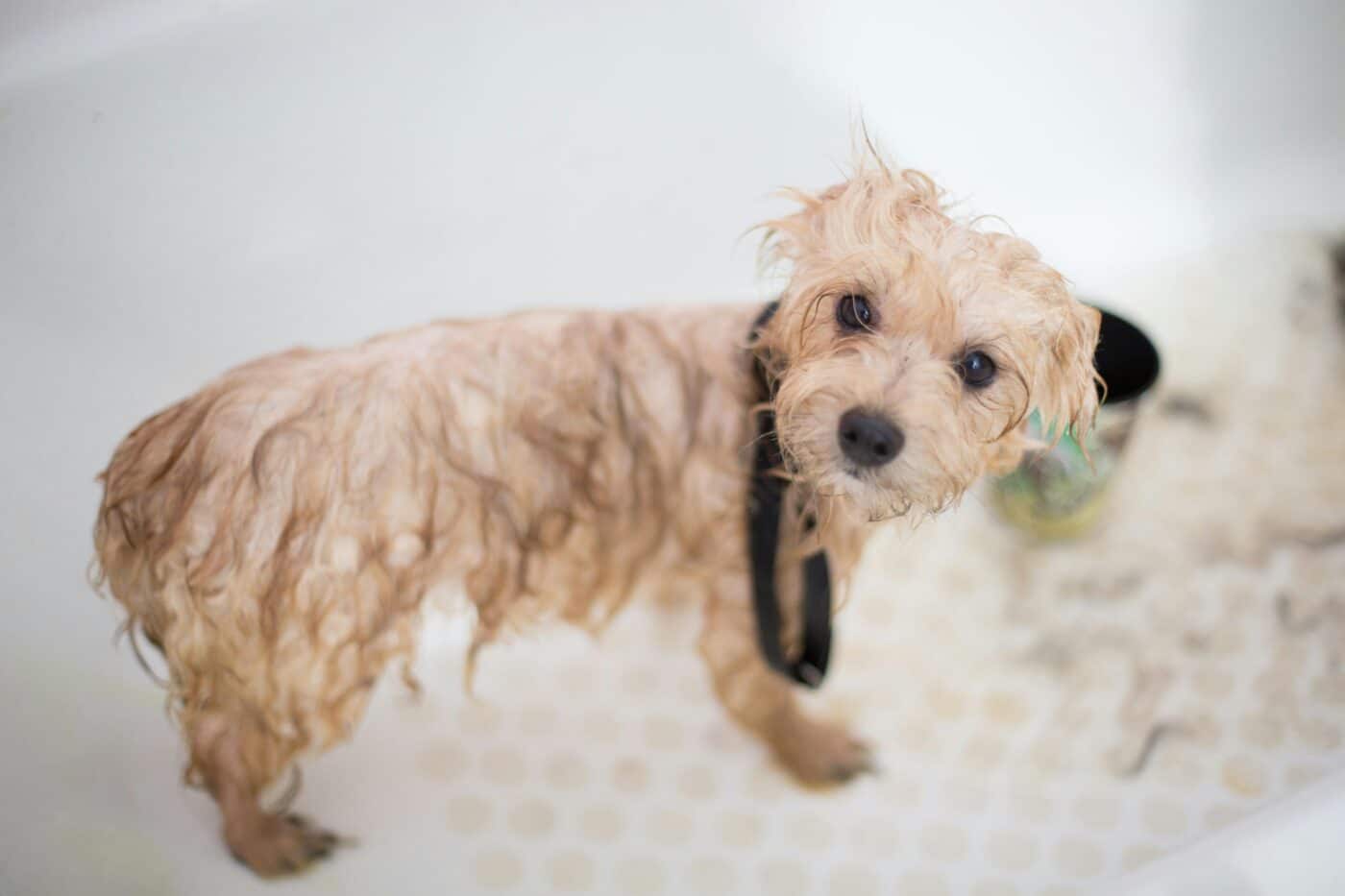 Shutterstock
Shutterstock
Ensure the water is at the right temperature before starting the bath. Lukewarm water is ideal, as it’s not too hot or cold. Cold water can be uncomfortable, while hot water can irritate your dog’s skin. Always test the water with your hand to ensure it’s comfortable before you begin bathing your dog.
Protect Your Dog’s Ears
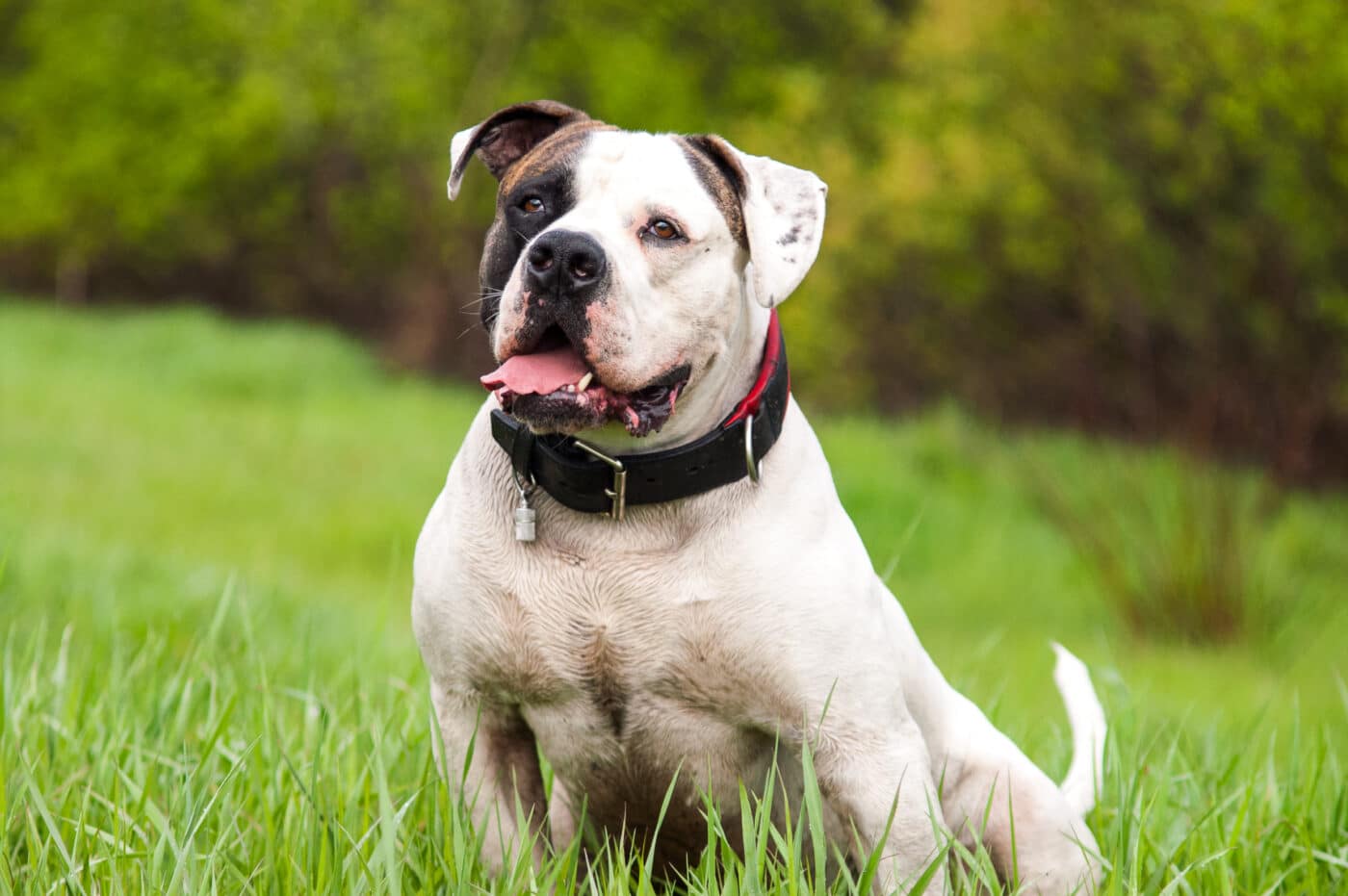 Shutterstock
Shutterstock
Keeping your dog’s ears dry during the bath is essential to prevent infections. You can place cotton balls in their ears to keep water out, but be sure to remove them immediately after the bath. When rinsing your dog’s face, avoid getting water into their ears, as moisture buildup can cause irritation or infections.
Massage While Lathering
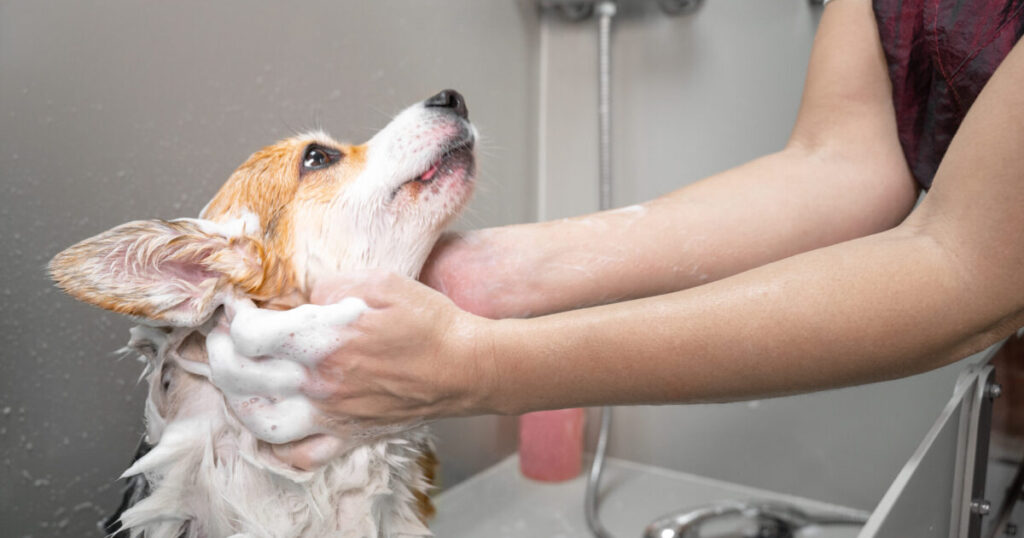 Shutterstock
Shutterstock
While lathering the shampoo into your dog’s coat, gently massage them. Use slow, circular motions to work the shampoo into their fur and skin. This not only cleans their coat but also provides a relaxing experience for your dog. A gentle massage helps improve circulation and can even soothe sore muscles.
Rinse Thoroughly
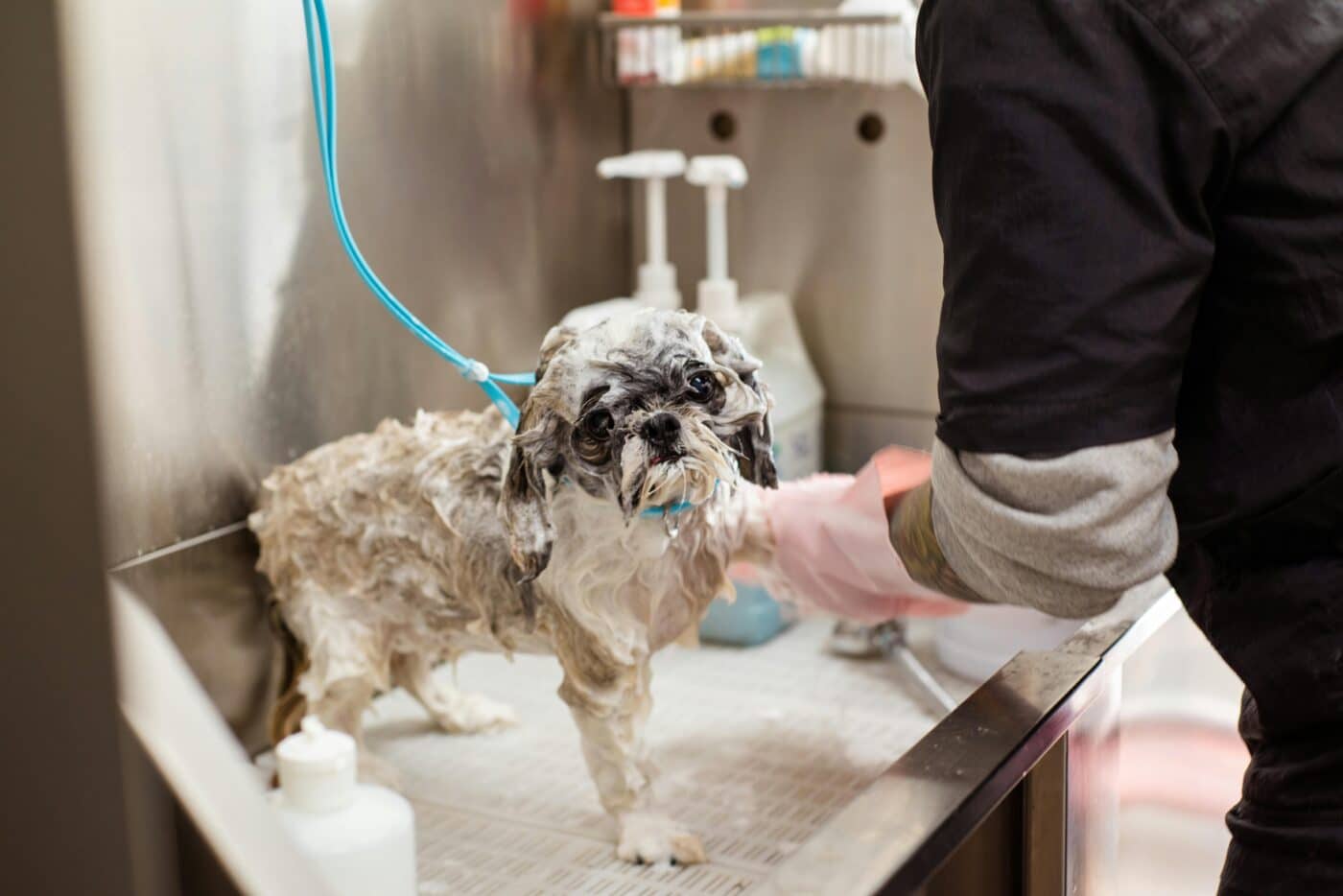 Shutterstock
Shutterstock
One of the most important steps in any bath is ensuring all the shampoo is rinsed. Any leftover residue can cause itching, dryness, or skin irritation. Rinse your dog thoroughly until the water runs clear, and don’t rush this process. The better the rinse, the more comfortable your dog will feel after the bath.
Conditioner for a Soft Coat
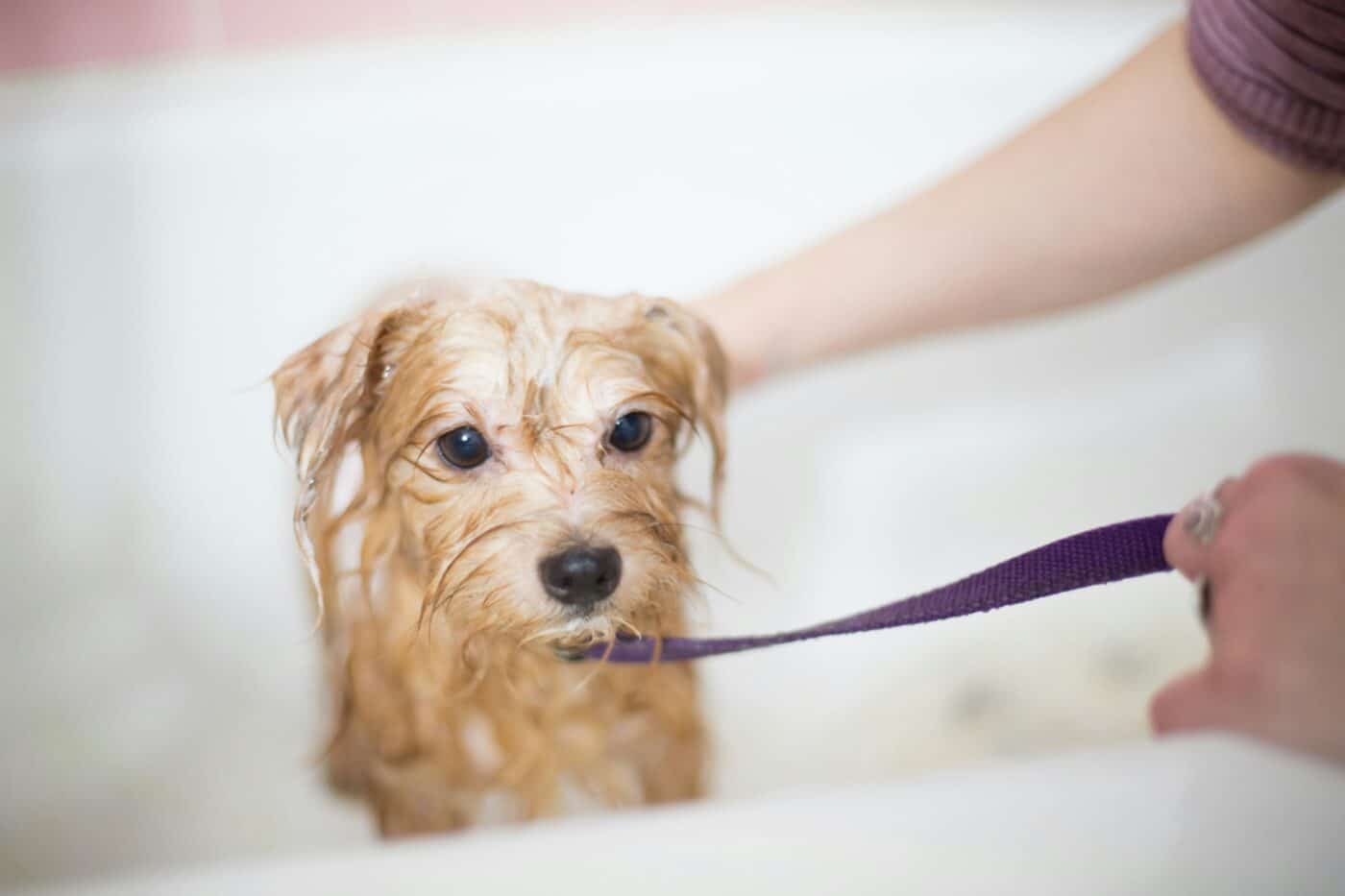 Shutterstock
Shutterstock
Conditioner isn’t just for humans—dogs can benefit from it too! If your dog has long or curly fur, using a dog-specific conditioner will help keep their coat soft, tangle-free, and shiny. Conditioning can also help prevent matting in dogs with longer hair. Be sure to rinse the conditioner out just as thoroughly as the shampoo.
Drying with Care
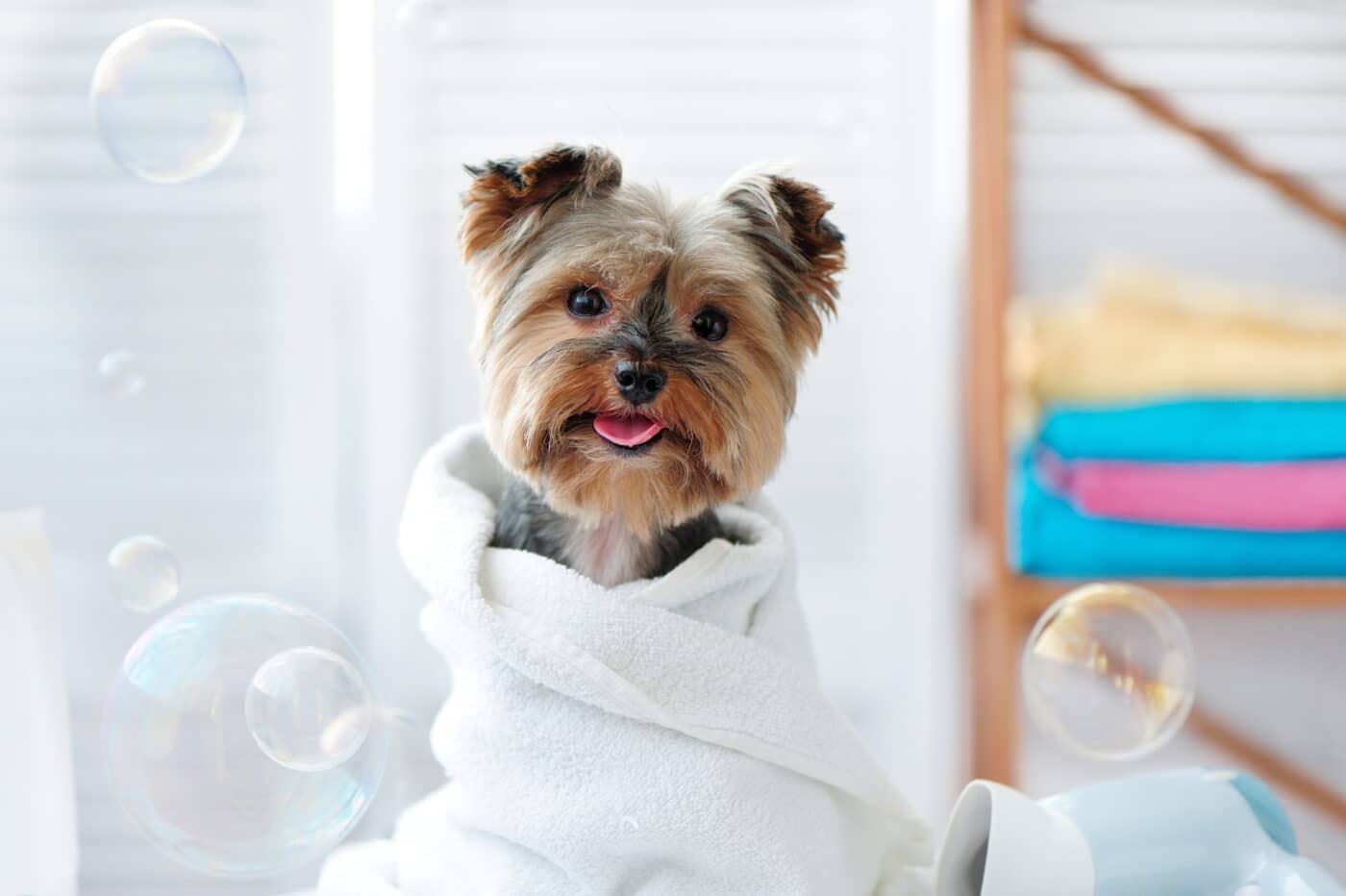 Shutterstock
Shutterstock
After the bath, gently towel-dry your dog to remove excess water. If your dog is comfortable with a blow dryer, you can use one on a low heat setting to help dry their coat faster. Always hold the dryer at a safe distance to avoid overheating. For dogs who are sensitive to the noise of a blow dryer, towel-drying and air-drying in a warm space is a good alternative.
Nail Care Matters
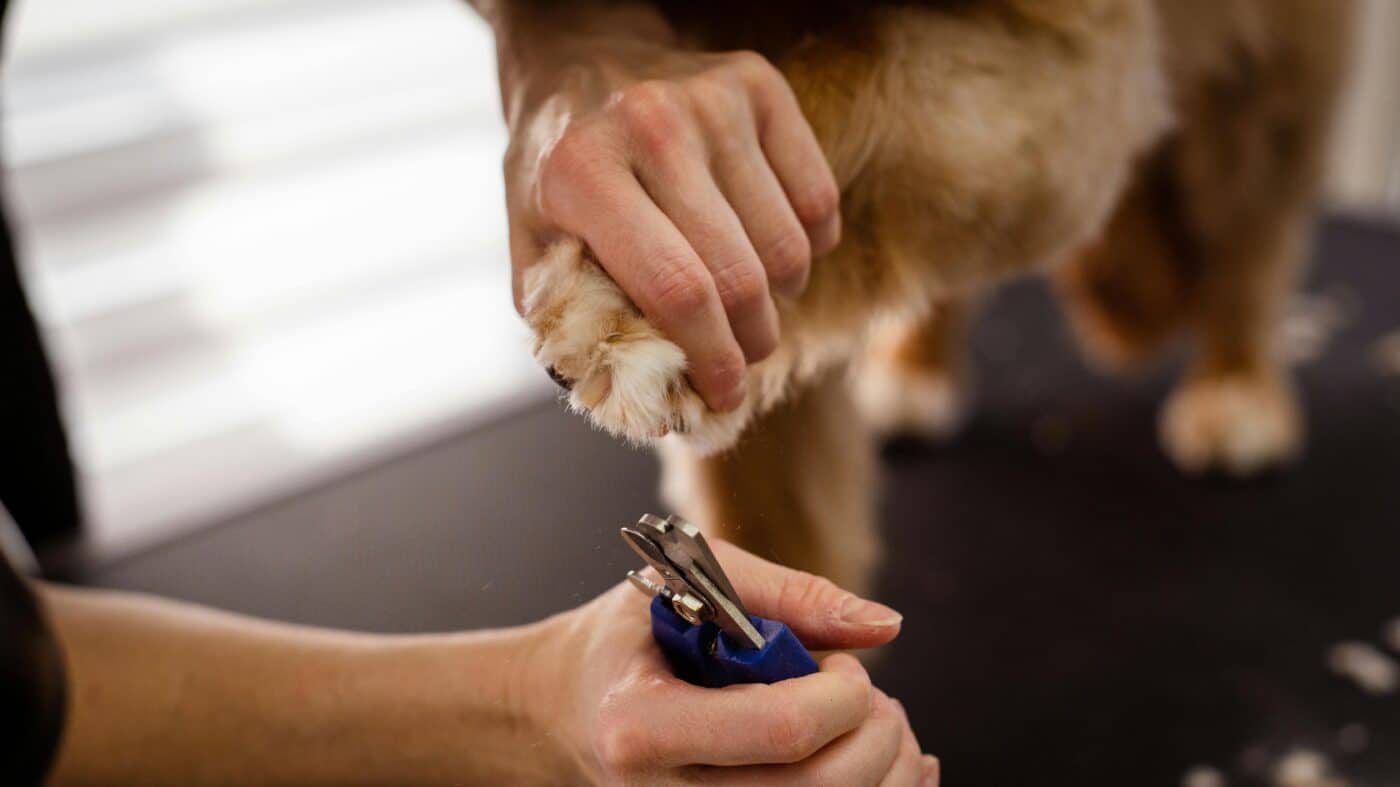 Shutterstock
Shutterstock
Regular nail trimming is crucial for your dog’s comfort and health. Overgrown nails can cause discomfort, change how your dog walks, and even lead to injury. Use a pet-specific nail clipper, and trim only a small portion of the nail at a time to avoid cutting quickly, which can cause bleeding. If you’re unsure, consult your vet or a professional groomer.
Paw Pads Deserve Attention
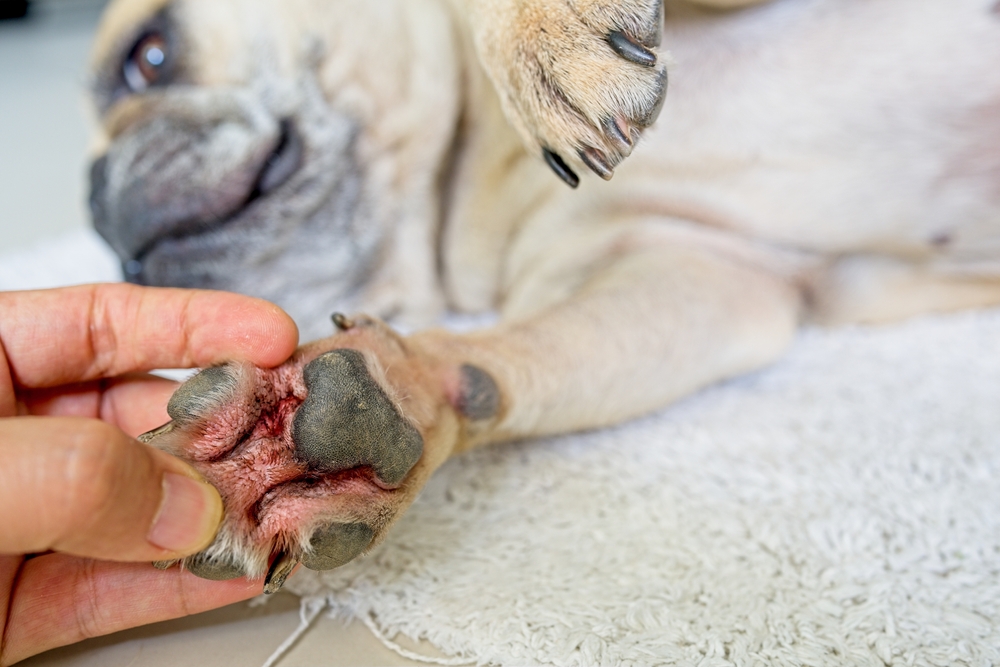 Shutterstock
Shutterstock
While grooming, don’t forget about your dog’s paw pads. These hardworking areas can become dry, cracked, or irritated, especially after outdoor activities. Check for any cuts, scrapes, or debris lodged between their pads. Applying a paw balm or coconut oil can help soothe and protect your dog’s paws from dryness and irritation.
Check and Clean the Ears
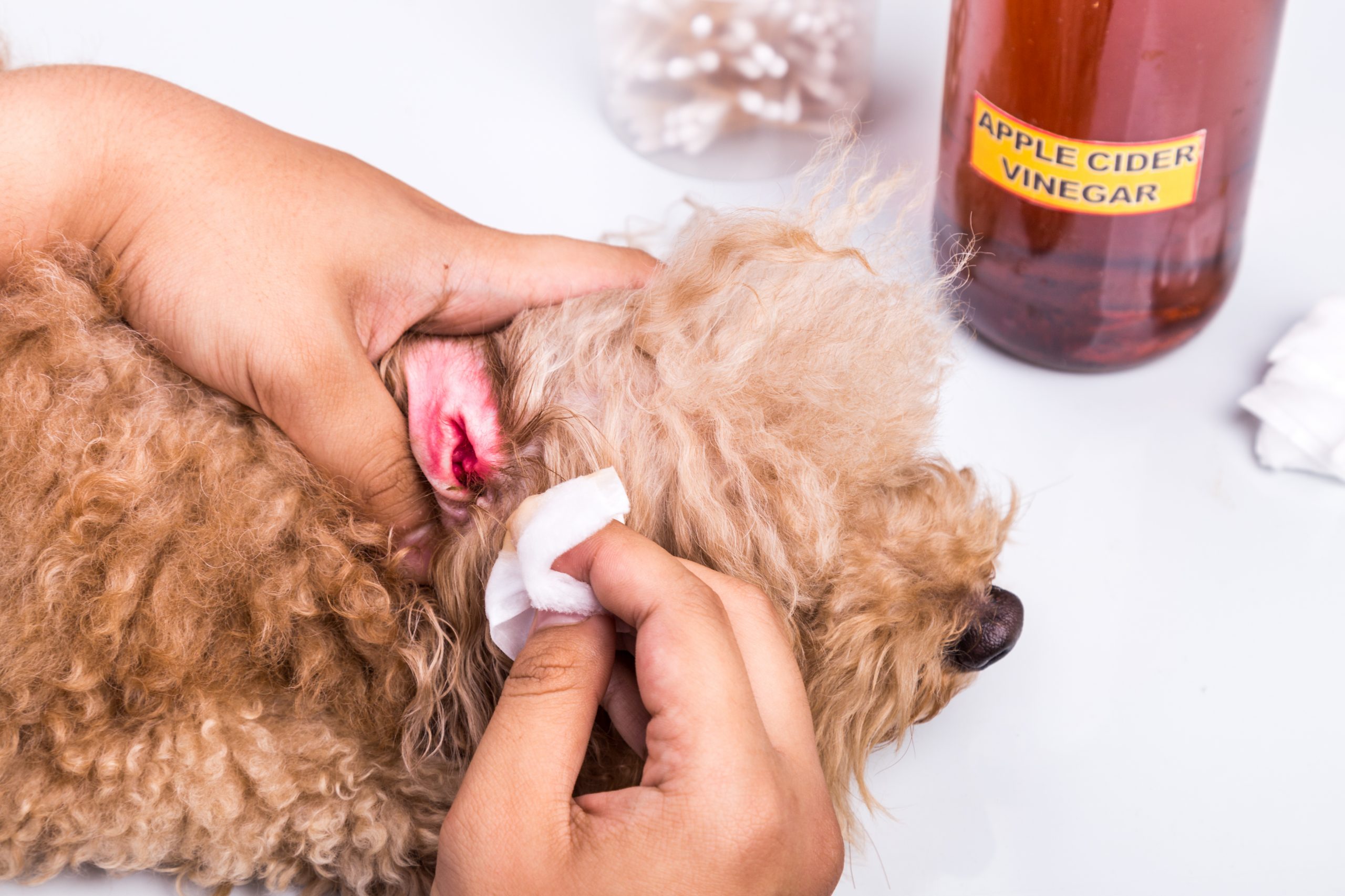 Shutterstock
Shutterstock
Ear care is an essential part of your dog’s spa day. Gently clean your dog’s ears using a cotton ball and a vet-approved ear-cleaning solution. Avoid using cotton swabs, which can push dirt further into the ear canal. Regular ear cleaning helps prevent infections and ensures your dog’s ears remain healthy.
Freshen Their Breath
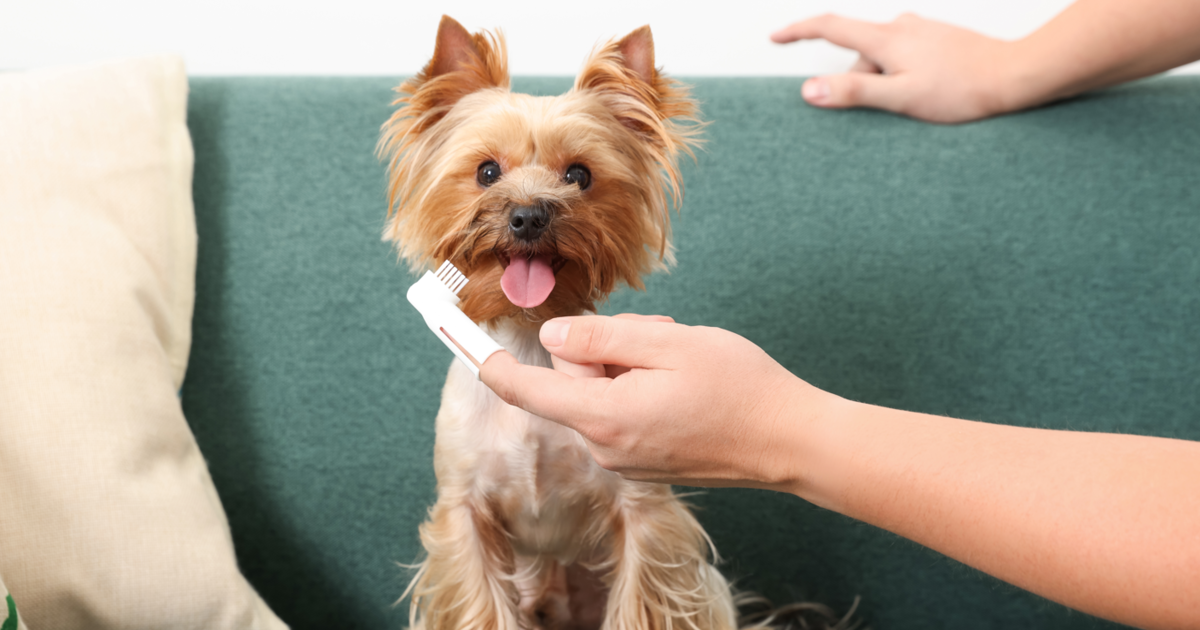 Shutterstock
Shutterstock
Don’t overlook dental care during spa day! Use a dog-specific toothbrush and toothpaste to clean your dog’s teeth. Regular brushing helps prevent plaque buildup and keeps your dog’s mouth healthy. If your dog isn’t used to tooth brushing, introduce it slowly and reward them with treats afterward to create a positive association.
Finish with a Gentle Massage
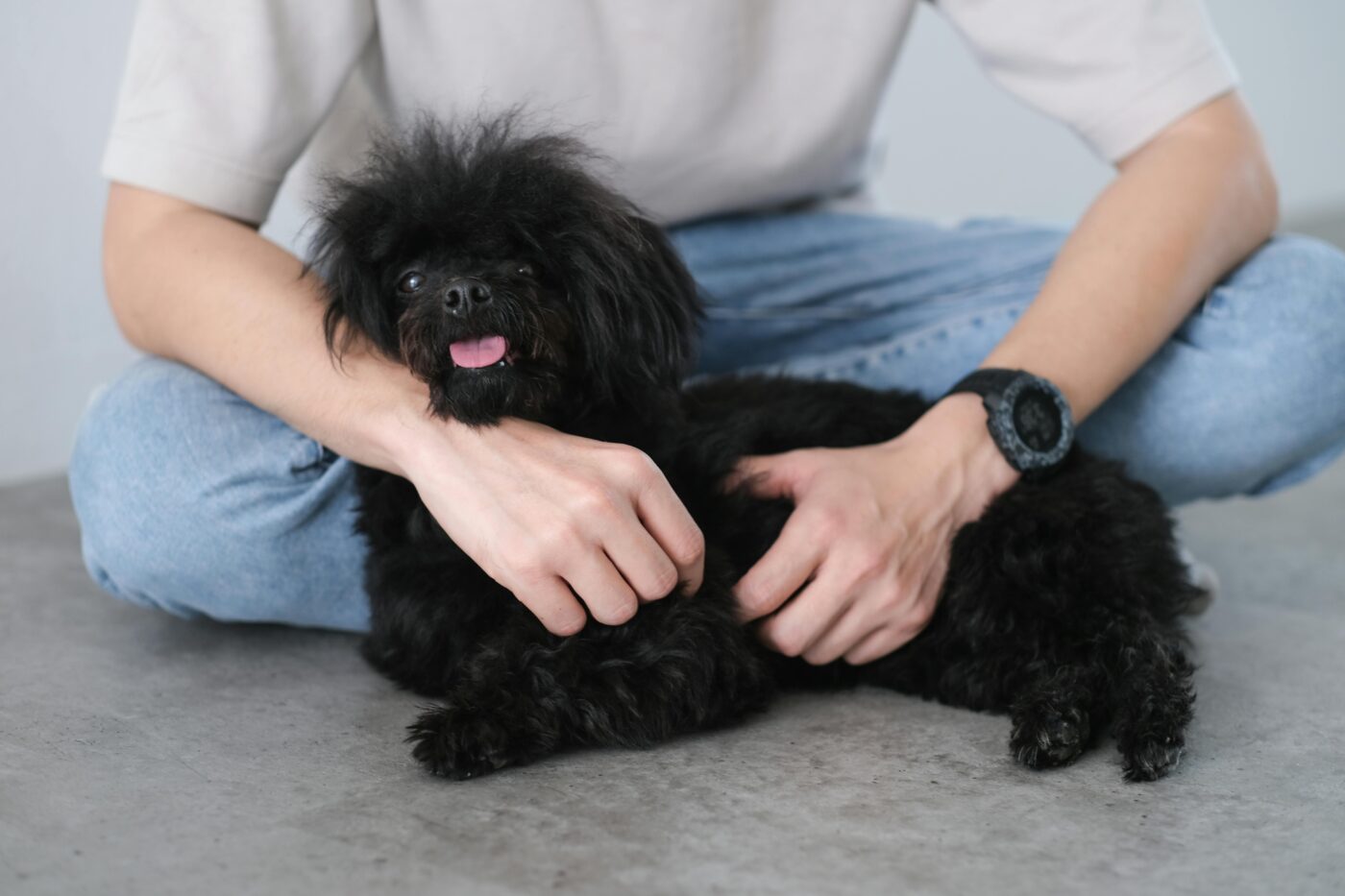 Shutterstock
Shutterstock
Once your dog is clean and dry, finish the spa day with a soothing massage. Gently rub their back, neck, and shoulders in slow, circular motions. This helps them relax after the grooming session and is a great way to strengthen the bond between you and your dog. Massages also help improve circulation and ease tension in your dog’s muscles.
Reward with a Special Treat
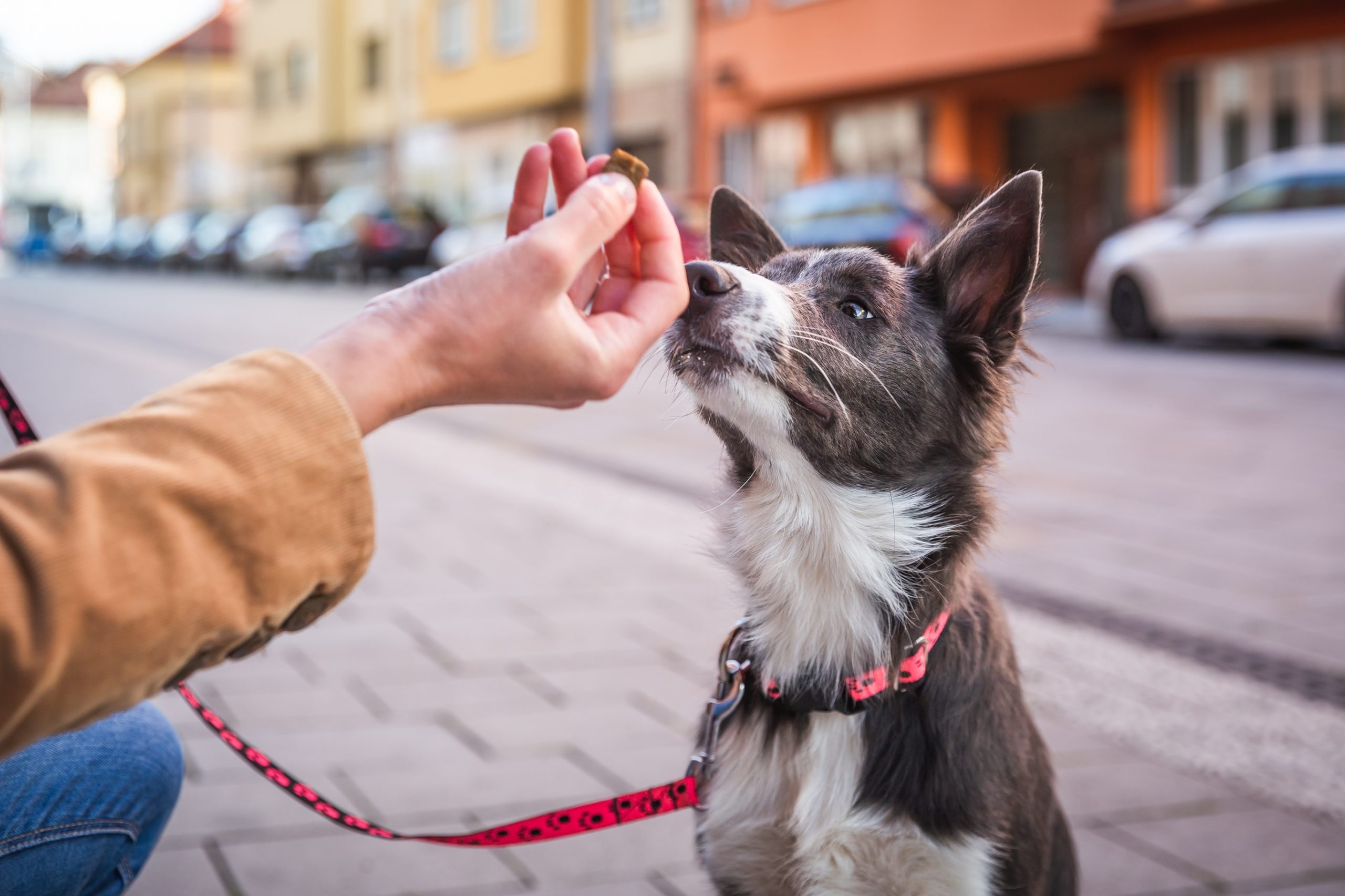 Shutterstock
Shutterstock
After a successful home spa day, give your dog a special treat or favorite toy to reward their patience and cooperation. This reinforces positive associations with grooming and ensures they look forward to future spa sessions. A happy, well-groomed dog is the perfect ending to a fur-tastic spa day!
Use a Detangling Spray
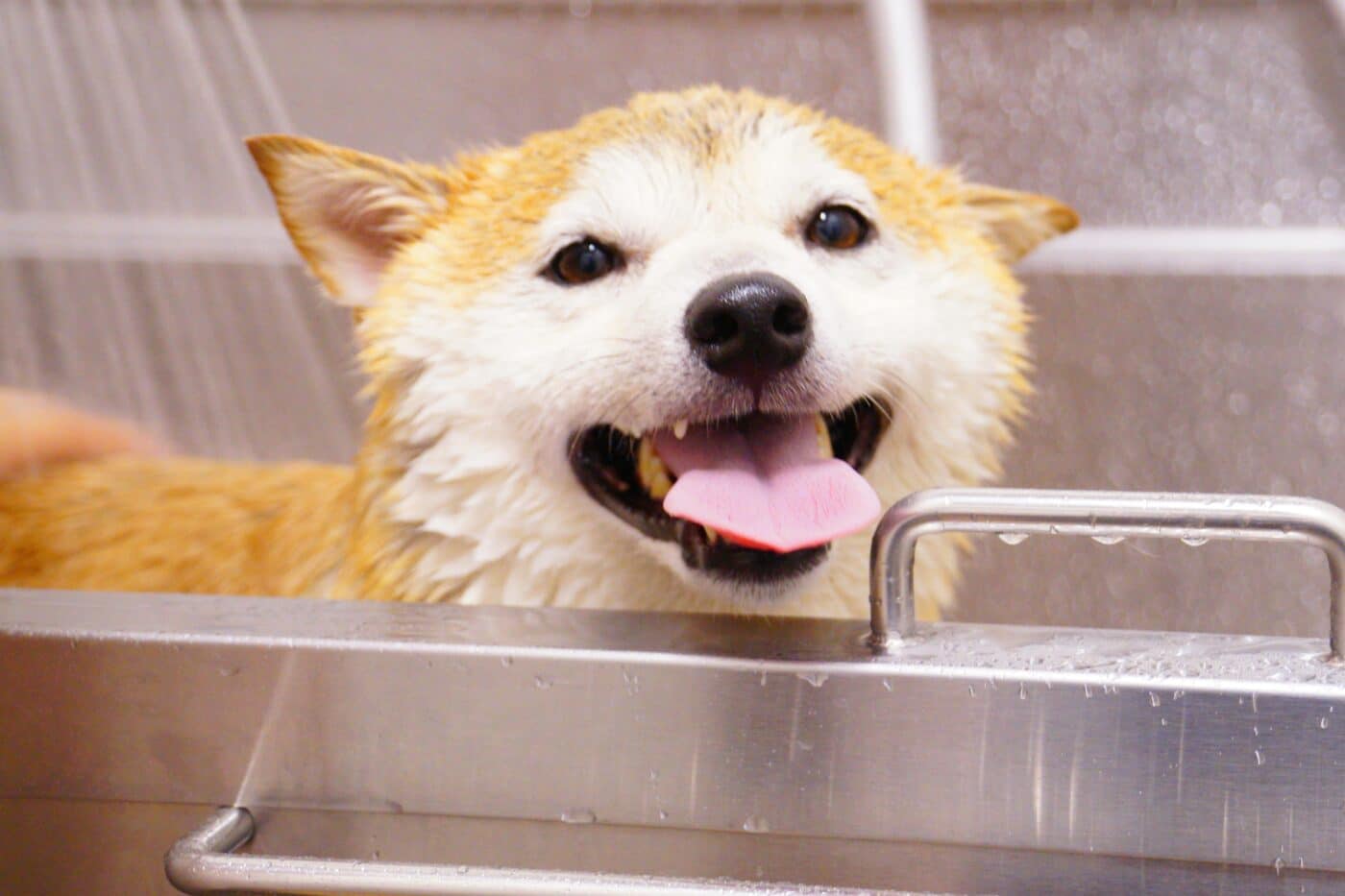 Shutterstock
Shutterstock
A detangling spray can be a lifesaver for dogs with long or curly fur. Before you begin brushing, apply a small amount of detangling spray to help loosen any mats or tangles. This will make the brushing process easier and less painful for your dog. Detangling sprays also help reduce breakage and leave the coat smooth and shiny.
Trim Fur Around Sensitive Areas
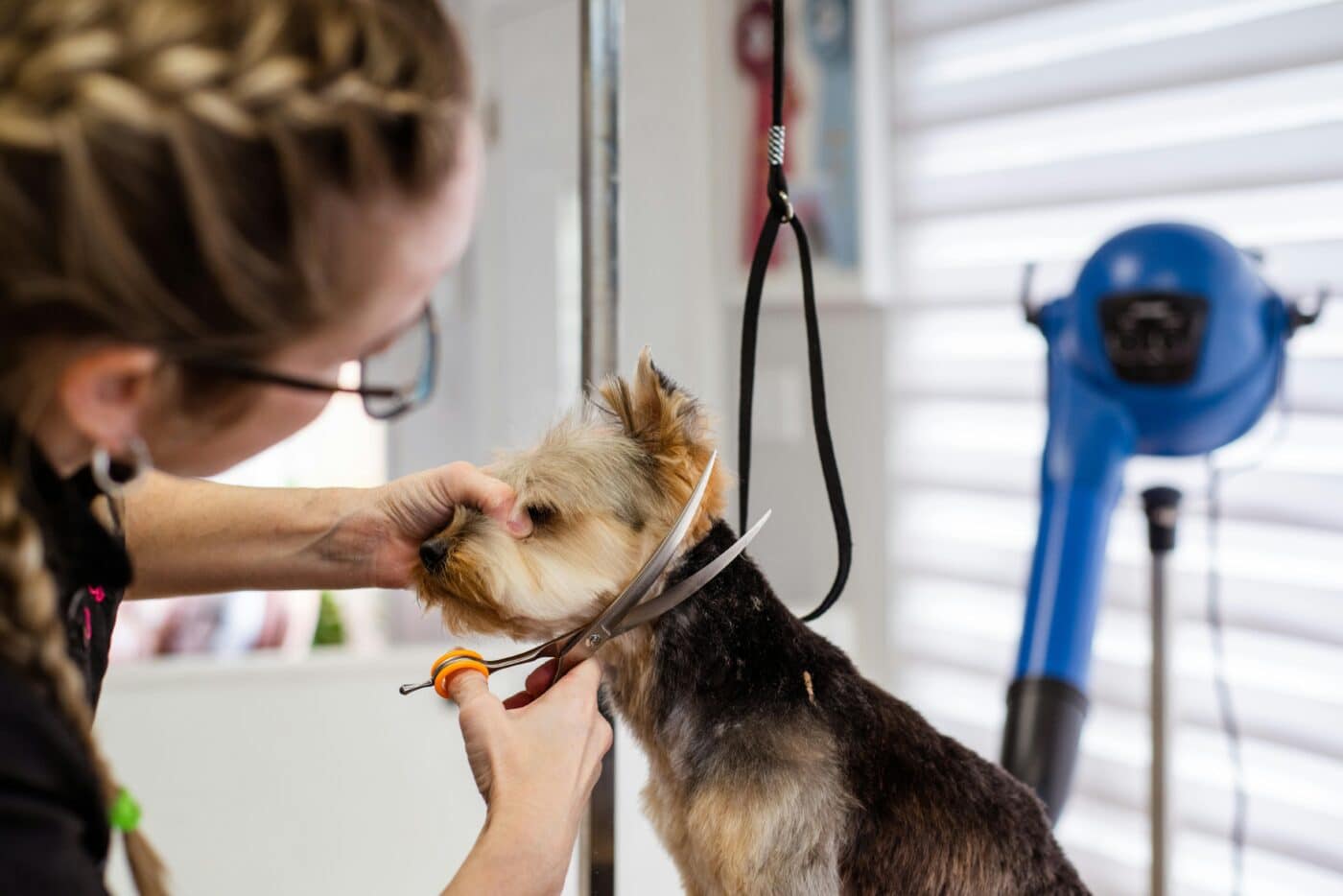 Shutterstock
Shutterstock
Dogs often have longer fur around areas like their paws, ears, and tails that may need a little trimming. Use rounded scissors to trim fur in these sensitive areas carefully. Keep your dog calm, reward them with treats as you work, and avoid cutting too much hair at once.
Bathe with Gentle, Circular Motions
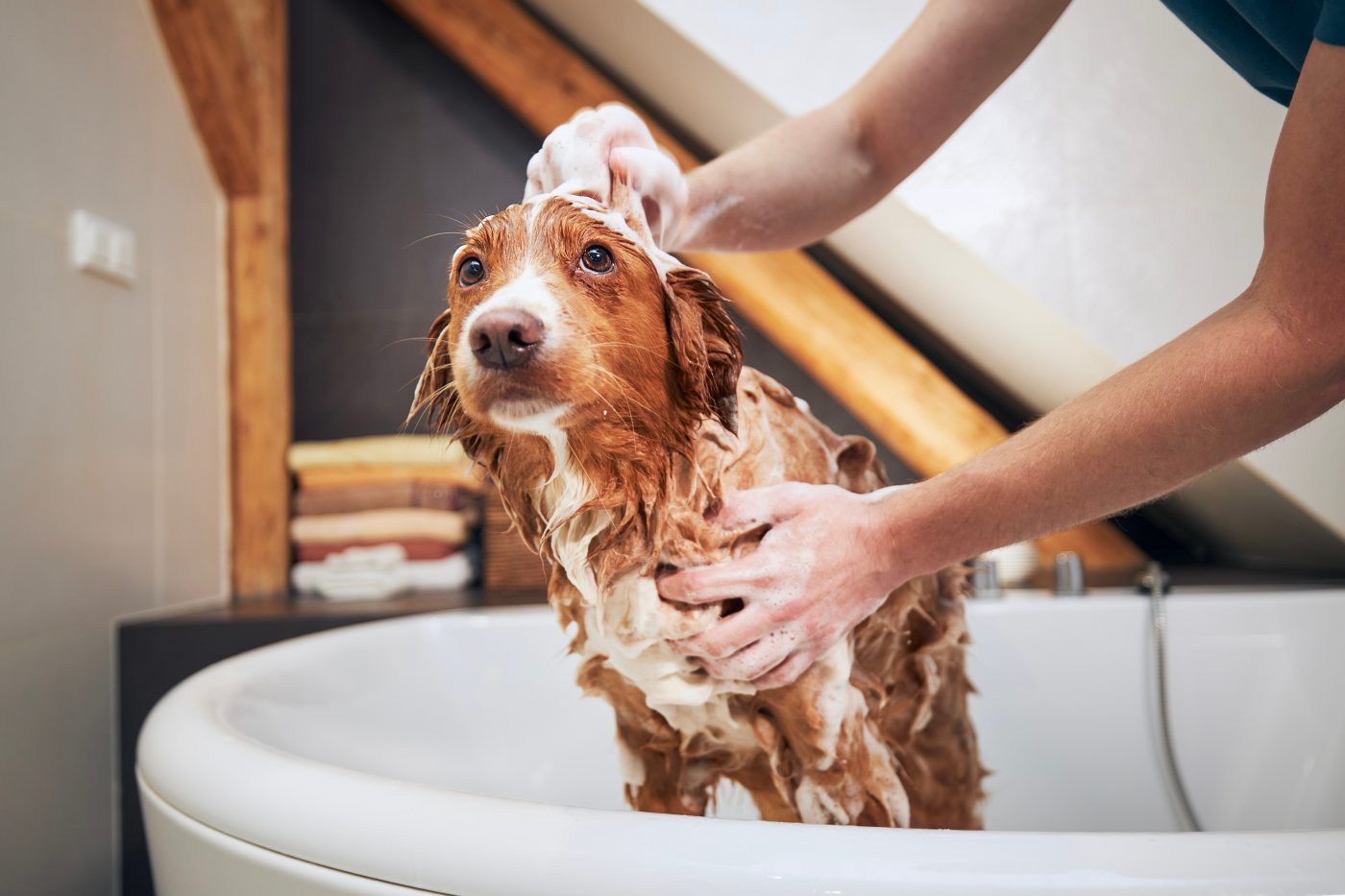 Shutterstock
Shutterstock
When bathing your dog, gently and circularly massage their skin and fur. This not only helps distribute shampoo evenly but also improves circulation. It’s a relaxing experience for your dog, helping to turn bath time into a soothing spa treatment.
Clean the Eyes and Tear Stains
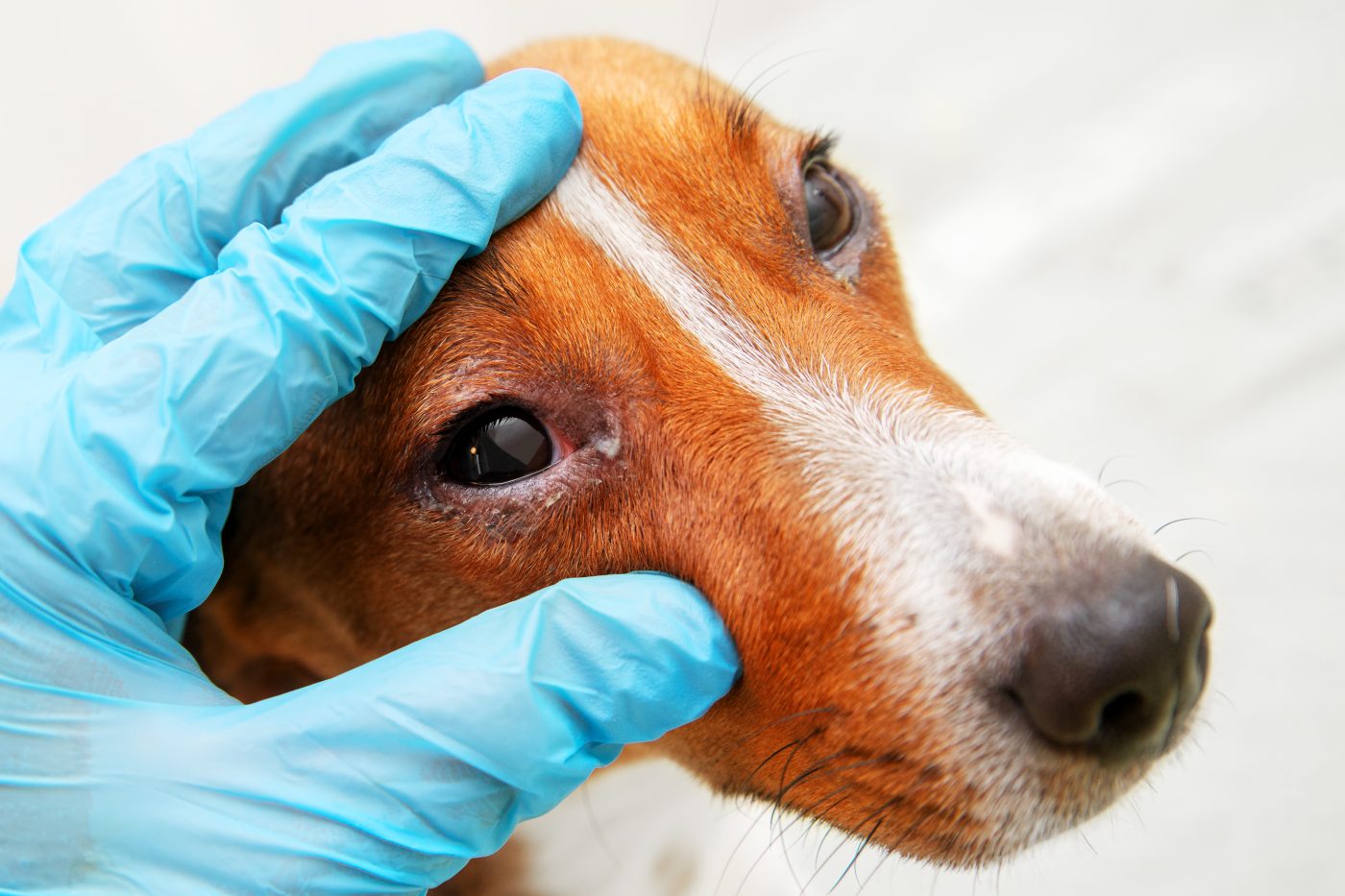 Shutterstock
Shutterstock
Some dogs, especially breeds with lighter coats, are prone to tear stains around their eyes. Use a soft, damp cloth or a tear-stain remover to wipe away any build-up around the eyes gently. Be extra careful not to get soap or cleaning products near their eyes to avoid irritation.
Clean Between Skin Folds
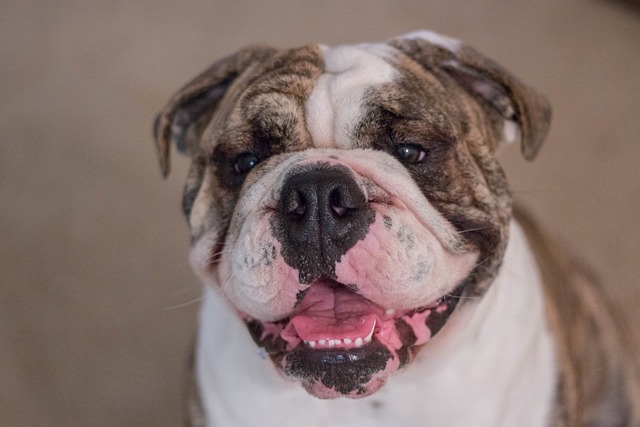 Shutterstock
Shutterstock
Dogs with facial wrinkles, like Bulldogs or Pugs, need extra attention in their skin folds. These areas can collect moisture and debris, leading to irritation or infection. Use a damp cloth to clean between their folds, and dry thoroughly afterward to prevent moisture build-up.
Use a Deshedding Tool
For dogs with thick undercoats, a de-shedding tool can be invaluable. This tool helps remove loose fur that regular brushes might miss, reducing shedding around your home. Deshedding your dog regularly helps maintain a healthy coat and minimizes the amount of fur you must clean up.
Brush in the Direction of Hair Growth
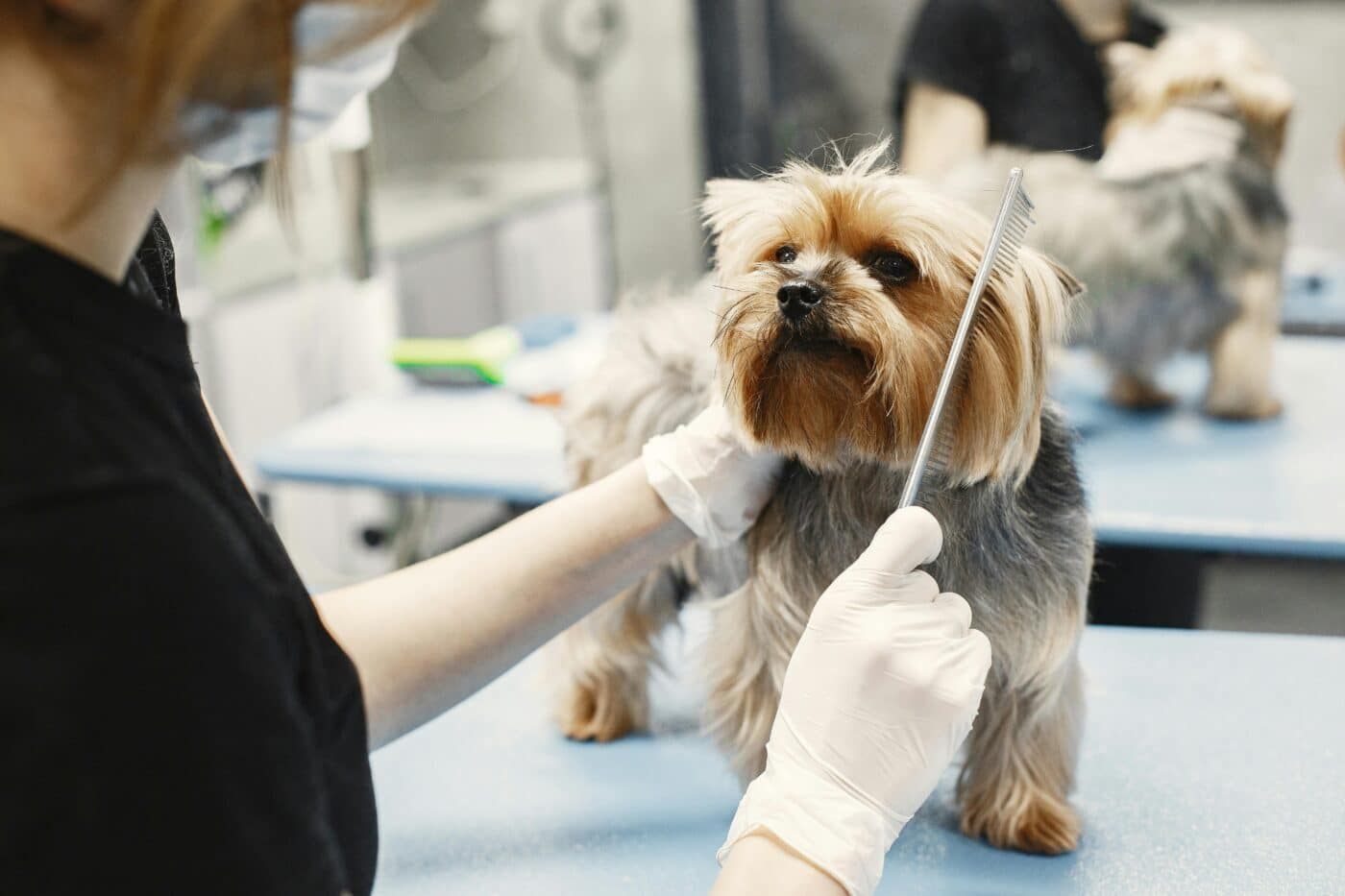 Shutterstock
Shutterstock
When brushing your dog, always brush in the direction of hair growth. This prevents hair breakage and reduces discomfort for your dog. Brushing against the direction of hair growth can pull at the fur and irritate your dog’s skin, making grooming more uncomfortable for them.
Inspect for Skin Issues
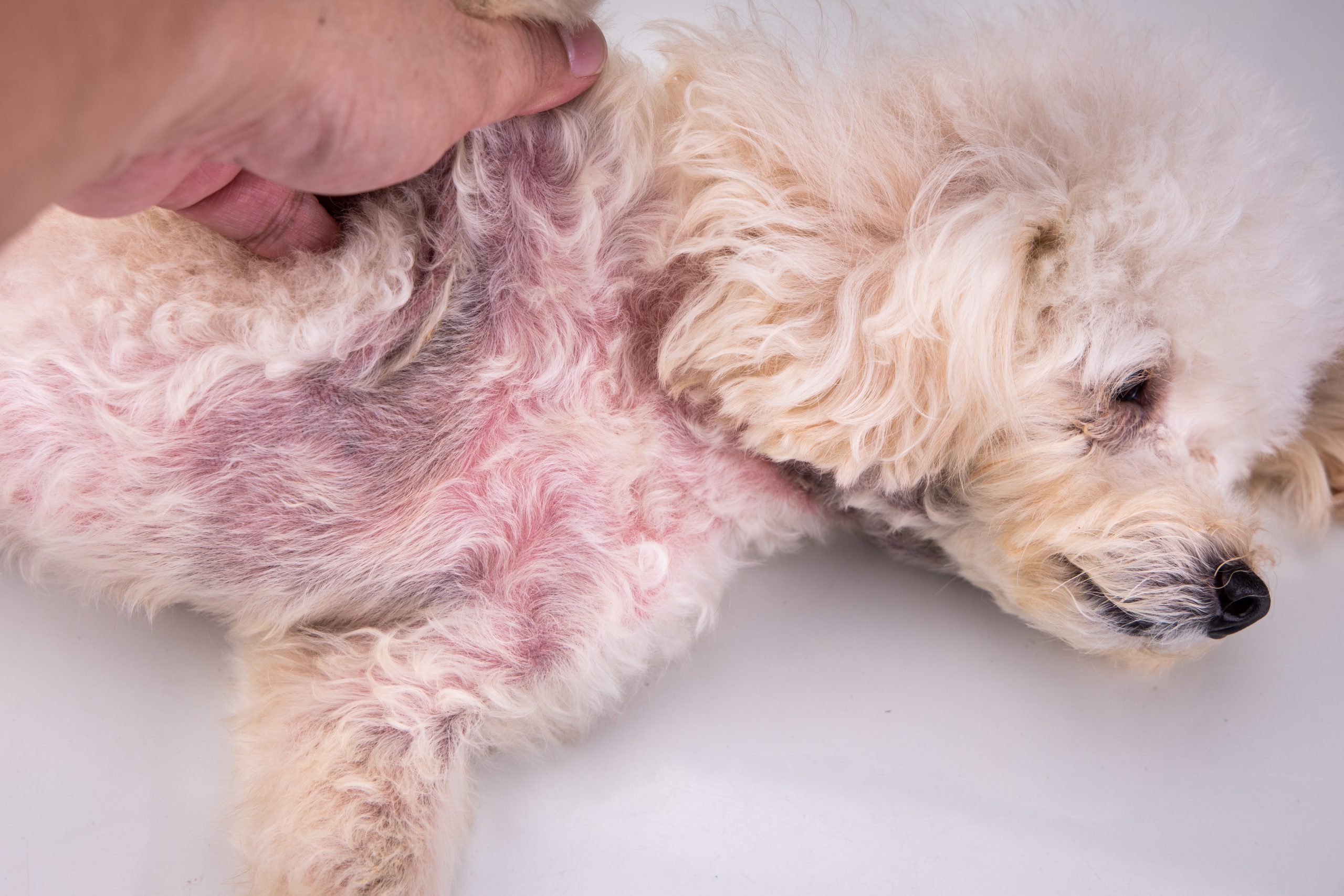 Shutterstock
Shutterstock
While grooming, take the opportunity to inspect your dog’s skin for any abnormalities. Check for signs of redness, irritation, bumps, or dryness. Early detection of skin issues can help prevent more serious conditions and allow you to address problems before they worsen.
Use Pet-Friendly Wipes Between Baths
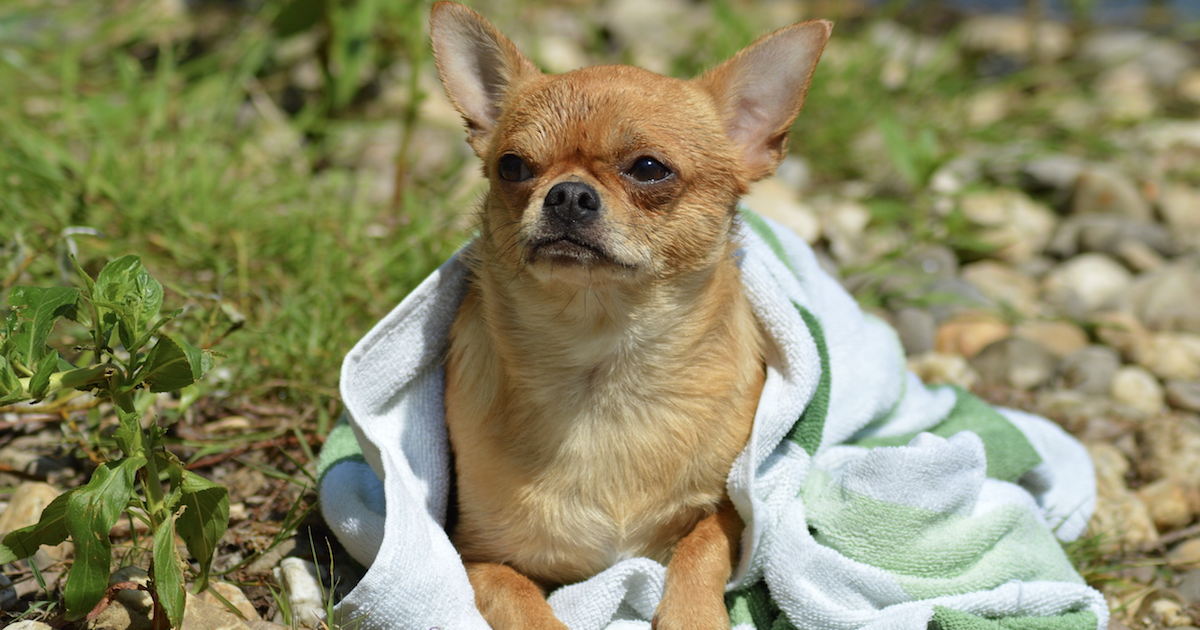 Shutterstock
Shutterstock
Pet-friendly grooming wipes are a great solution if your dog gets dirty between baths or after outdoor playtime. These wipes are gentle on your dog’s skin and fur and are perfect for cleaning up dirt, debris, or small messes without needing a full bath. Keep them handy for quick clean-ups.
Apply Paw Balm After Cleaning
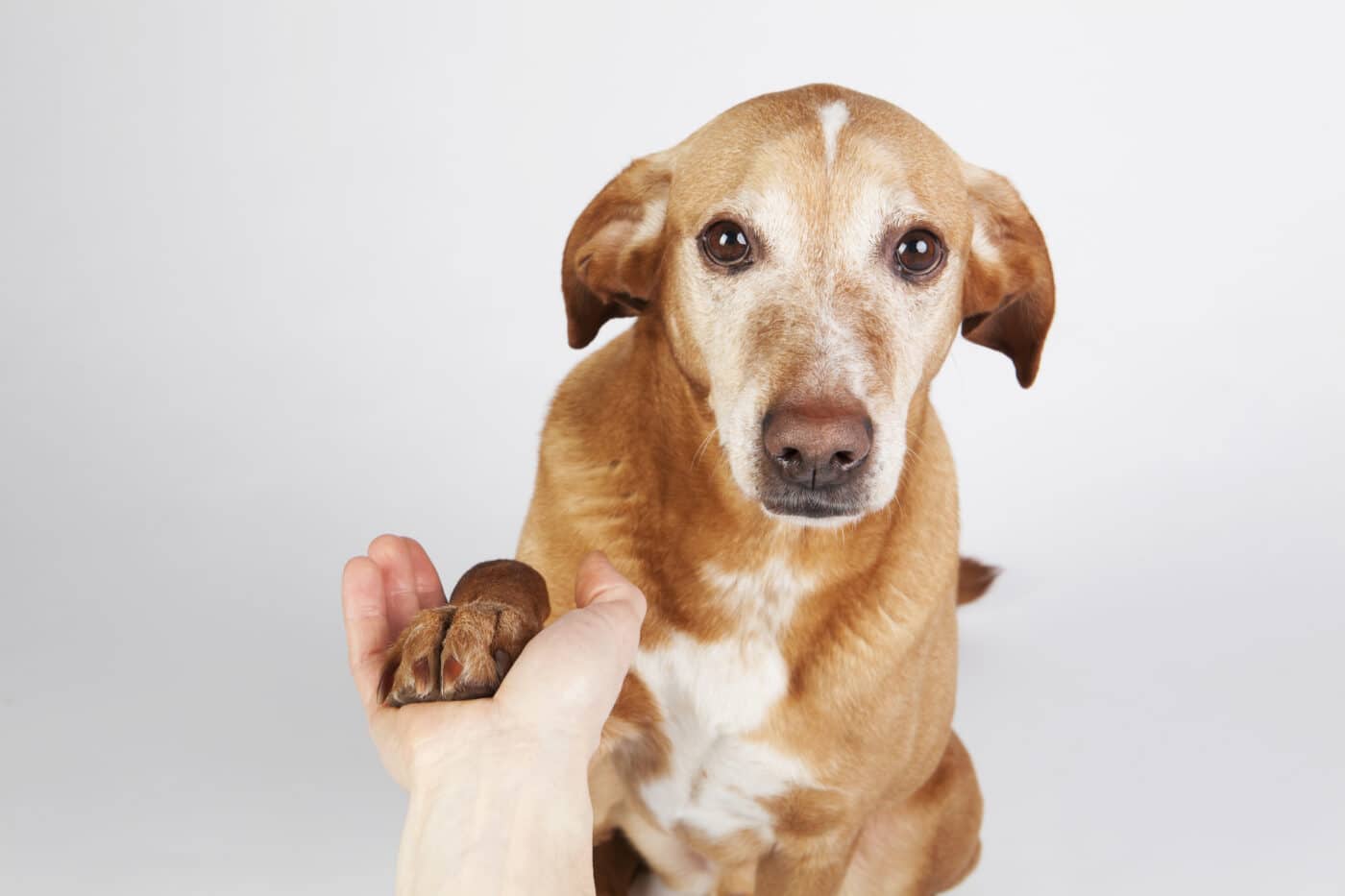 Shutterstock
Shutterstock
Once your dog’s paws are clean and dry, apply a nourishing paw balm to protect them from dryness and cracking. Paw balms are especially helpful in extreme weather conditions, protecting your dog’s paws from hot pavement in the summer or cold snow in the winter.
Use a Snuffle Mat to Calm Your Dog
 Shutterstock
Shutterstock
Introducing a snuffle mat with hidden treats can help distract and calm dogs that get anxious during grooming. As your dog sniffs around to find the treats, they focus less on the grooming process, making it easier for you to complete your spa day without added stress.
Try Aromatherapy for Relaxation
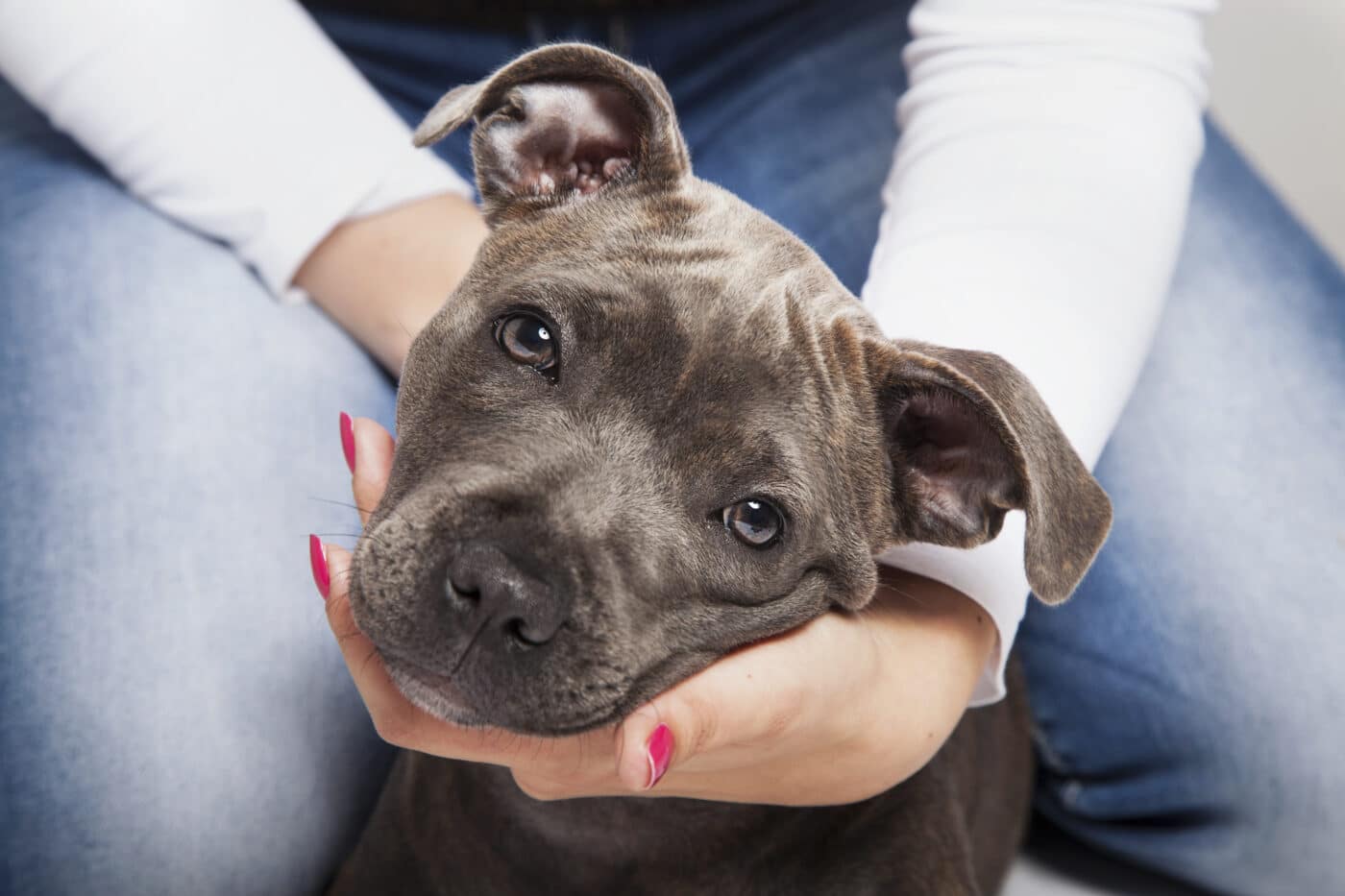 Shutterstock
Shutterstock
Some dogs benefit from aromatherapy to help them relax. Use a diffuser with dog-safe essential oils, such as lavender or chamomile, to create a calming environment. This can reduce anxiety and make your dog feel more at ease during grooming.
Check for Fleas and Ticks During Grooming
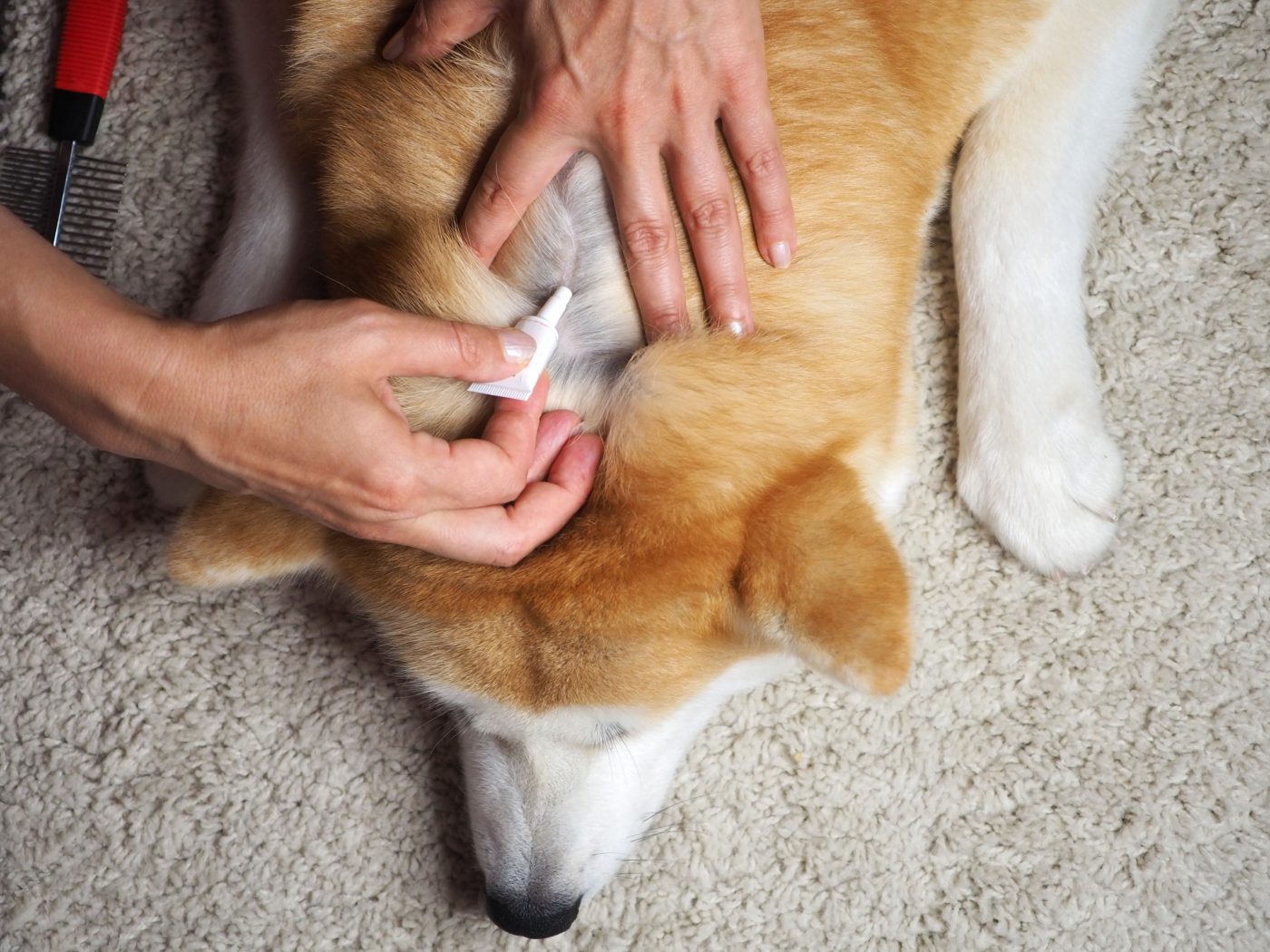 Shutterstock
Shutterstock
While brushing and bathing, take a moment to check your dog for fleas and ticks. These pests can hide in their fur, especially in warmer months. Run your fingers through your dog’s coat and look closely at their skin, particularly around the ears, neck, and underbelly.
Make Grooming a Playful Experience
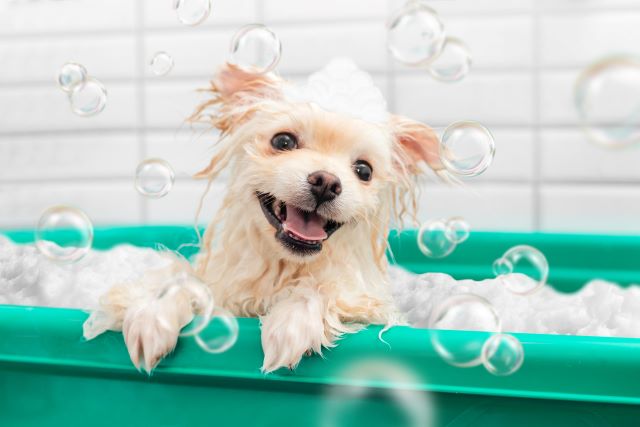 Shutterstock
Shutterstock
Incorporating play into your dog’s grooming routine can make it more enjoyable for both of you. Break up the grooming process by playing with their favorite toys or giving them puzzle feeders to keep them entertained. This makes the experience fun and helps your dog associate grooming with positive feelings.
Establish a Routine
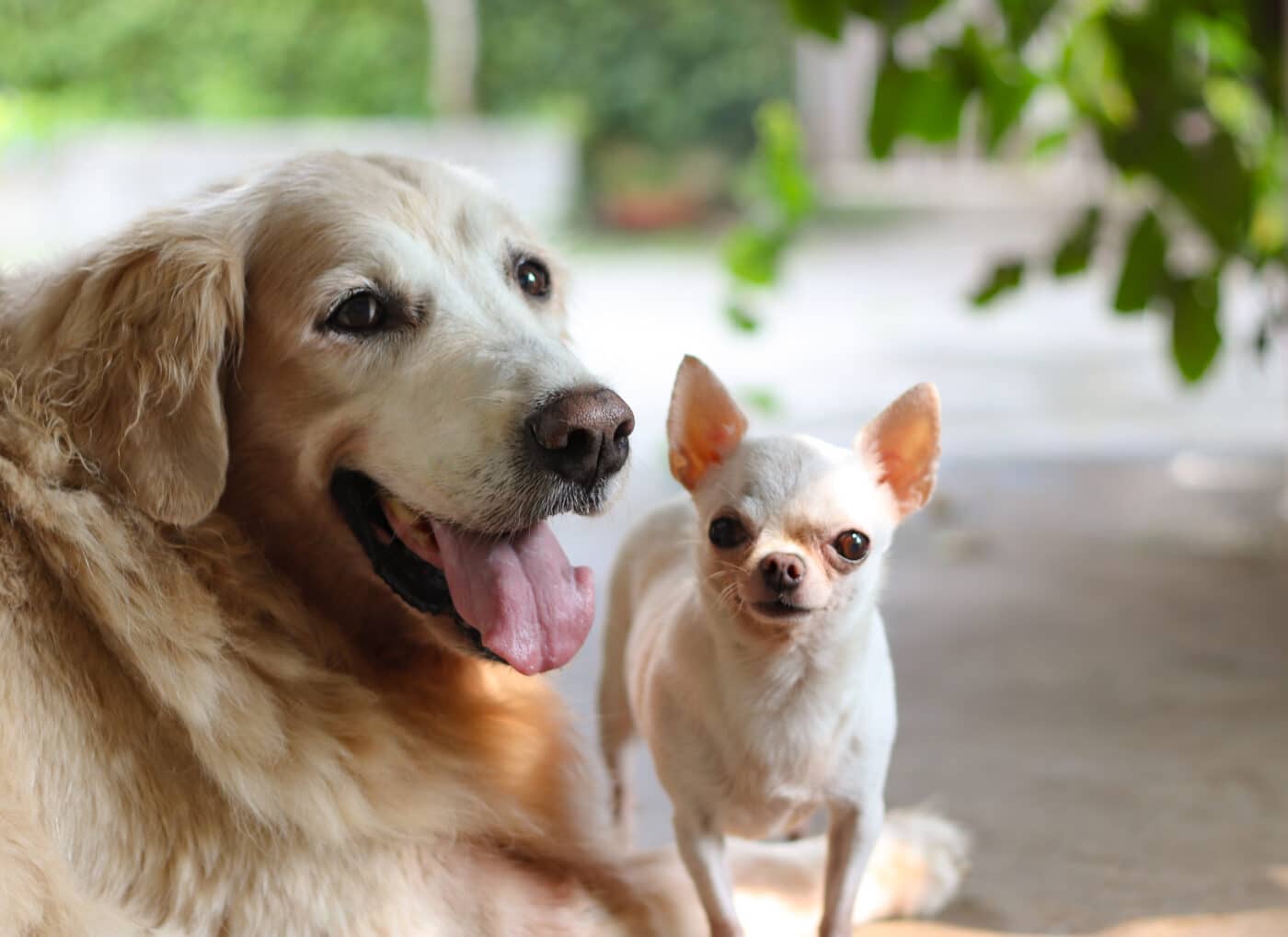 Shutterstock
Shutterstock
Consistency is key to successful grooming. Establish a regular grooming routine based on your dog’s needs—whether that means brushing every day, bathing once a month, or trimming nails weekly. The more consistent you are, the more comfortable your dog becomes with grooming.
A Relaxed and Pampered Pup
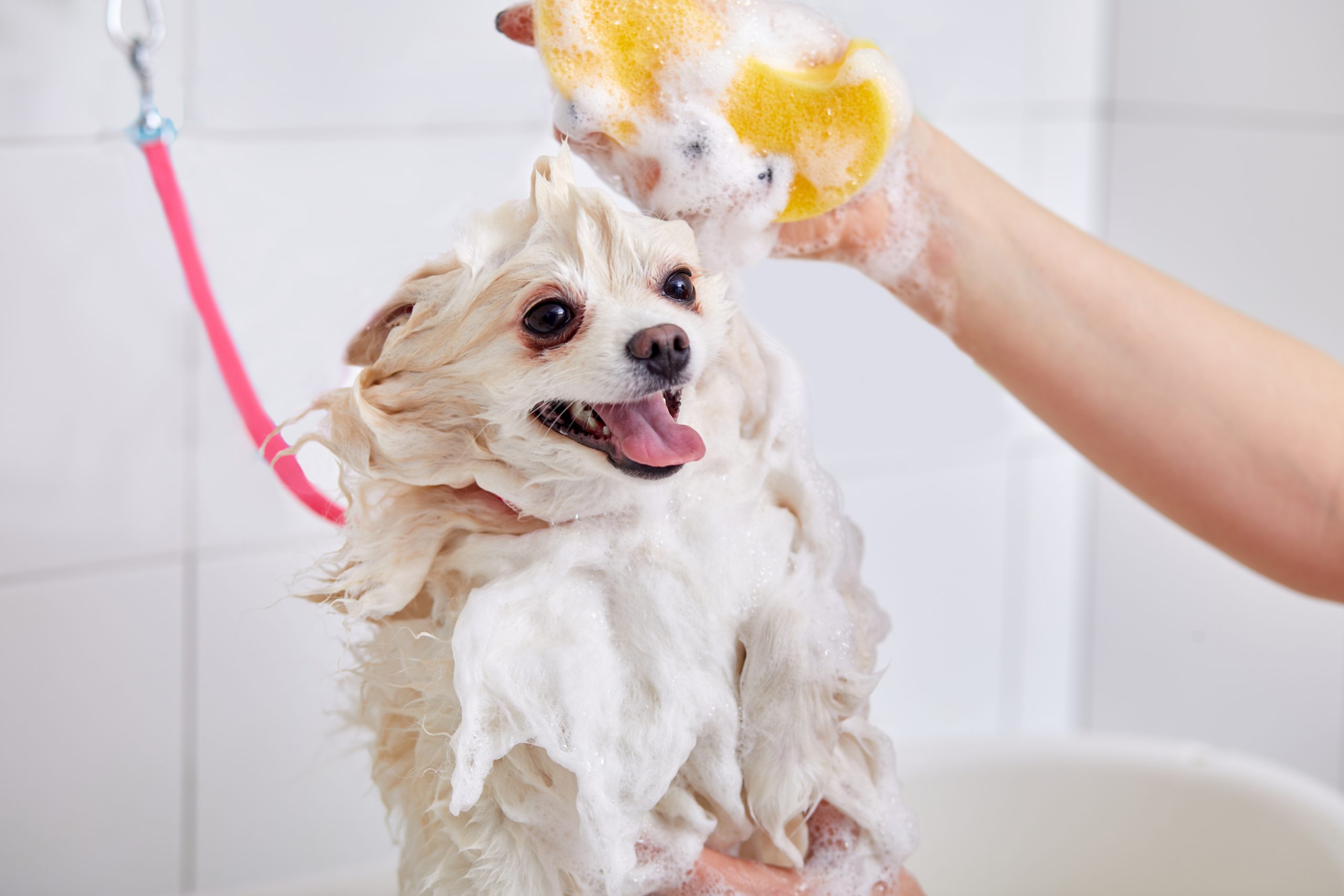 Shutterstock
Shutterstock
With these tips, you can create your dog’s perfect home spa day. Regular grooming isn’t just about keeping your dog looking good—it also promotes their overall health and strengthens the bond between you and your furry friend. From brushing and bathing to nail care and massages, a home spa day offers your dog a relaxing, enjoyable experience. So grab your grooming tools, prepare some treats, and get ready to pamper your pup with the ultimate spa experience right at home!
 Toledo, United States.
Toledo, United States.